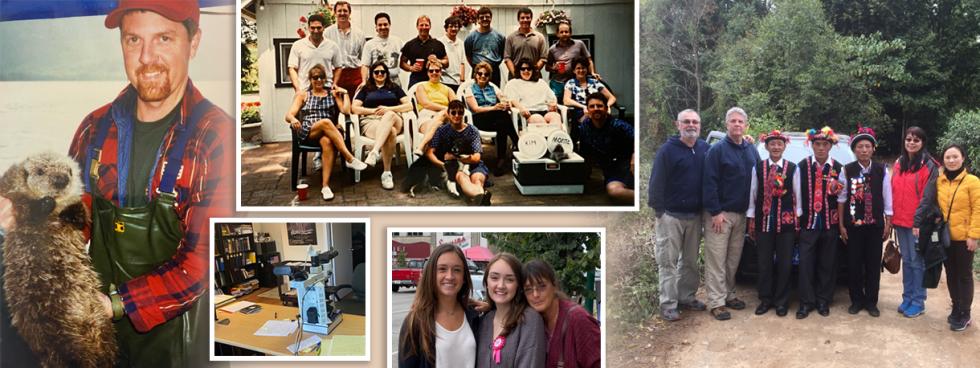
Quite the Journey
Dr. Paul Snyder can trace his professional philosophy back to his college days.
“I’ve always thought as my professional career as a journey,” he said.
As a student in the College of Veterinary Medicine, Snyder had his heart set on becoming a dairy veterinarian. And after he graduated with his DVM in 1985, he did just that, working in a mixed animal practice in Wisconsin.
Yet his ambitions kept drifting back to a pair of veterinary pathology faculty who planted a seed his DVM studies.
“They told me I really had a natural aptitude for pathology,” Snyder recalled. “They had a passion and enthusiasm for the profession that was infectious. I couldn’t get enough of the subject when I was a student and even as a practicing veterinarian, I kept thinking what if?”
So when his passion to be a dairy veterinarian subsided, the “seed” sprouted and Snyder decided to take a leap and return to school, eventually earning a PhD in veterinary pathobiology from Purdue University and becoming a board-certified veterinary pathologist. With those credentials, his journey led him to an academic career culminating as a full professor at Purdue.
For over 20 years, Snyder taught immunology and pathology to DVM and graduate students during their pathology residency.
“My career at Purdue was highly rewarding,” Snyder said. “I had a real passion for teaching and an infectious enthusiasm for immunology and pathology similar to those who influenced me as a student.
“I always expected excellence from my DVM students, which often resulted in more of a love/hate relationship, but in the end, I think they all appreciated the learning experience.”
But classroom instruction wasn’t all Snyder did at Purdue. He also developed a broad independent research program and his expertise in the spontaneous vasculitis syndrome of purpose bred Beagle dogs made him a sought-after expert in the field.
Over a period of 14 years, Snyder was involved in studies on the long-term effects of the Exxon Valdez oil spill on sea otters in Alaska. As a scientist he would spend weeks in the summer months on a boat in the Prince William Sound collecting samples that would be analyzed in his lab at Purdue. As a veterinarian, Snyder surgically instrumented the otters with VHF radios and time depth recorders.
His surgical techniques on the sea otter have become a go-to method for similar projects he was involved in with biologists at the Monterey Bay Aquarium and along the northwest coast of Washington state.
“The Alaska project was tailor-made for me as I have always been and still am an outdoor enthusiast,” Snyder said. “It was a pet project that brought me notoriety resulting in numerous presentations to students, scientific societies and community groups, even to this day.
“I actually became more widely known for the Alaska project than I did as a pathologist.”
Remember though, Snyder considers his career as a journey and his professional journey did an about face again in 2014 when he retired from Purdue to take a position with EPL, Inc., (Experimental Pathology Laboratories). EPL provides expert pathology-related services to the pharmaceutical and toxicological research community.
“Many of my colleagues thought I had lost my mind when I left Purdue,” Snyder said, “but at that point in my career I thought I had already ‘been there, done that.’”
For years, Dr. Jerry Hardisty (’71), EPL CEO and senior pathologist, had been attempting to lure Snyder into the public sector and in 2014, the time was right for Snyder to make the move.
“It’s another part of my professional journey,” he said. “I thought I had another ten-year run in me and it has turned out to be true.”
Today Snyder is the manager of EPL Southeast and a senior pathologist. He now spends his time evaluating or reviewing preclinical safety studies, writing reports, and chairing pathology working groups.
“I haven’t regretted any of the opportunities my journey has presented me, a single day,” Snyder said.
This October Snyder will be honored for his professional career journey when he will receive the College of Veterinary Medicine’s Stange Award, the highest award presented to the college’s distinguished alumni.
October 2021
